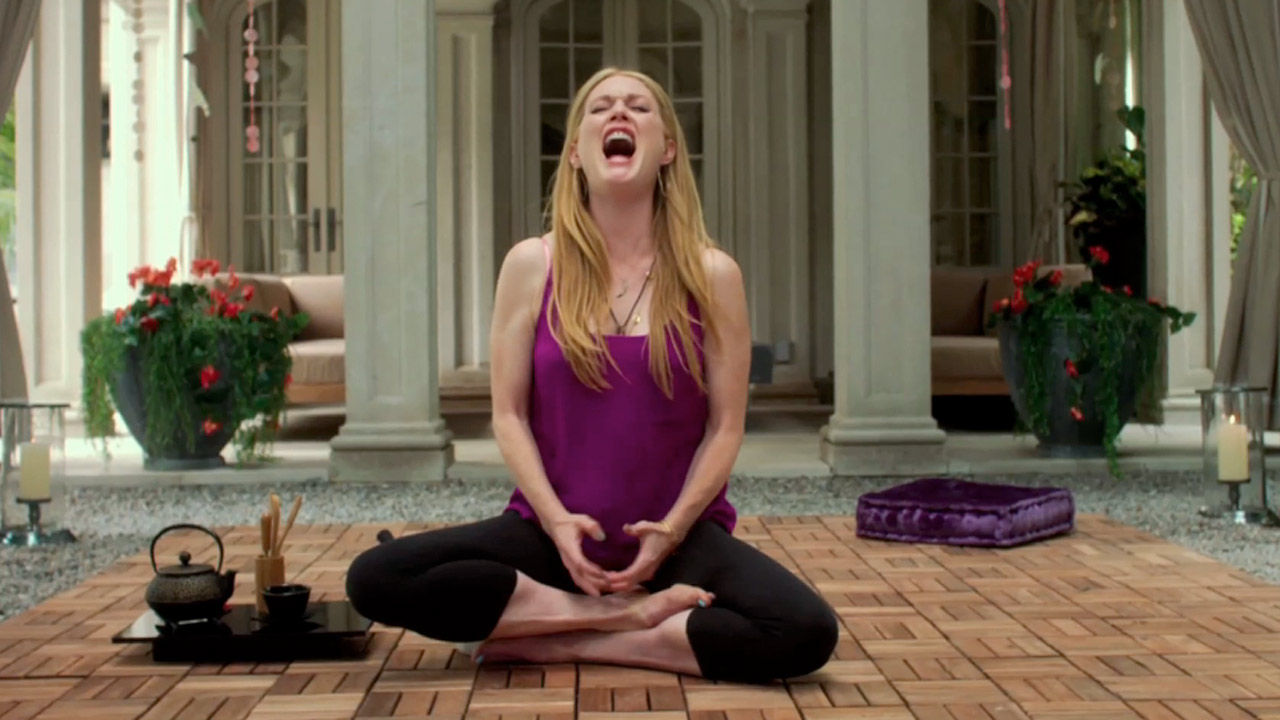
It’s definitely possible to present a story without any redeemable characters, where everyone and everything wallows in a murky atmosphere of disgusting actions and reprehensible people. Maybe the audience laughs at the ridiculous vileness of the characters, or maybe the story is meant to scathingly critique a powerful institution or idea. It can be done, and it has been done — but not in Maps to the Stars.
David Cronenberg’s latest film is too absurdly specific in its premise and yet too broad in its critique of Hollywood. The sunny world of Los Angeles holds a dark secret of narcissistic, spoiled, pill-popping, terrible people fighting off the ghosts of past icons and repressed memories? The inner workings of producers and actors are sordid and filled with fake friendships and sexual favors? This is hardly new territory, and peppering the years-old script with references to modern actors and celebrities doesn’t give it anything new to say.
Maps to the Stars tells the story — such as it is — of Havana Segrand (Julianne Moore, Seventh Son), an aging actress literally haunted by the ghost of her famous actress mother, and the Weiss family, headed by an eccentric self-help coach (John Cusack, Reclaim) who spends his time doing drugs and spouting vague spiritual psychobabble and his son Benjie (Evan Bird), a horrifying Justin Beiber type who’s already been in and out of rehab at age 13. Their lives intersect with Agatha (Mia Wasikowska, Madame Bovary), a schizophrenic burn victim who finds herself in L.A. for reasons unknown, and her new friend Jerome Fontana (Robert Pattinson, The Rover), a limo driver and wannabe actor/writer. The script wanders through scene after scene of these people, seemingly with no apparent reason or overarching message other than “these are terrible people and Hollywood is terrible.”
While presented as a satire in the marketing material, screenwriter Bruce Wagner claims it’s not a satire but rather a “ghost story” and a “melodrama.” Perhaps he’s right, but it’s vaguely possible to see a version of this film that went full satire and was actually — what a thought — funny. The bones of the film seem built for satire, almost as if it was originally conceived as such before its writer decided to make it something it never should have been. As it stands now, none of these genre tags really works.
Ghost story seems obvious, but the ghosts fail to be scary in any way. They act more as the physical manifestations of characters’ nagging insecurities and fears. But when the characters are this awful and uninteresting, it’s hard to wring any emotions from the ghosts’ words. Sometimes the ghosts know more information than the character, suggesting they’re literal spirits and not just psychological demons, but nothing ever comes from this realization. Melodrama seems wrong too, as melodrama at its best amplifies all emotions and drama, not simply the blank angst of boring fame addicts crying because their awful decisions have come back to hurt them.
If there are small pinpricks of light in this soup of dreadfulness, it’s most of the performances. Moore’s Segrand is pathetic and disturbing, but Moore inhabits the character so fully that it’s hard to not be begrudgingly impressed with the portrayal. Wasikowska’s Agatha is seemingly our sweet audience surrogate, but she plays with a dangerous, unhinged edge that only gets fully revealed late in the film. Cusack brings some semblance of life to his performance, and Olivia Williams (who plays his character’s wife) delivers a brittle performance as a chain-smoking mother trapped in a life she despises but helped create.
Maps to the Stars is admittedly stylish and full of talent, but the script is a muddled mess that can’t decide what it wants to be. If it leaned heavier into satire and comedy or went full-out terrifying ghost story, it would be better off for it. The film does feature a few bursts of graphic violence and gross body depictions, but in comparison to other Cronenberg films, it seems light.
If this is what the stars are like, we’d better stay on Earth.



